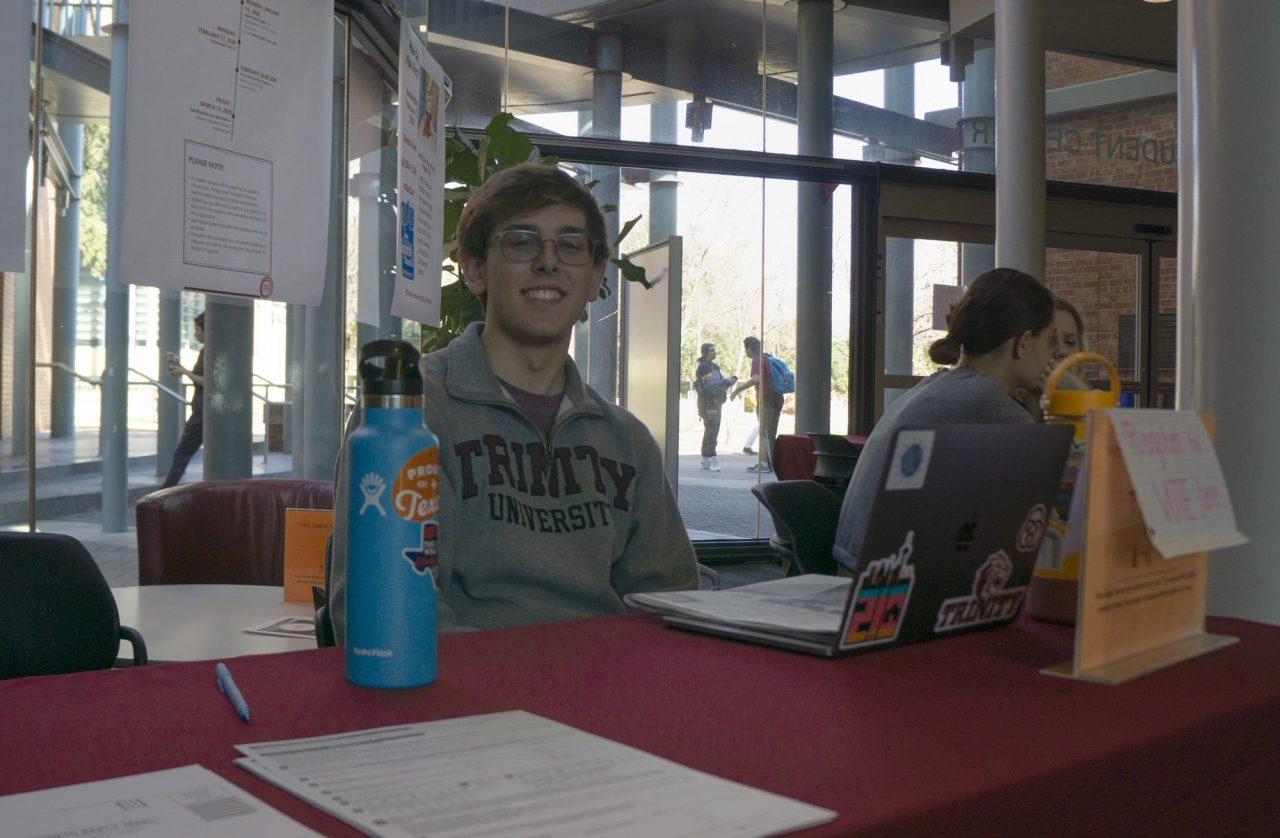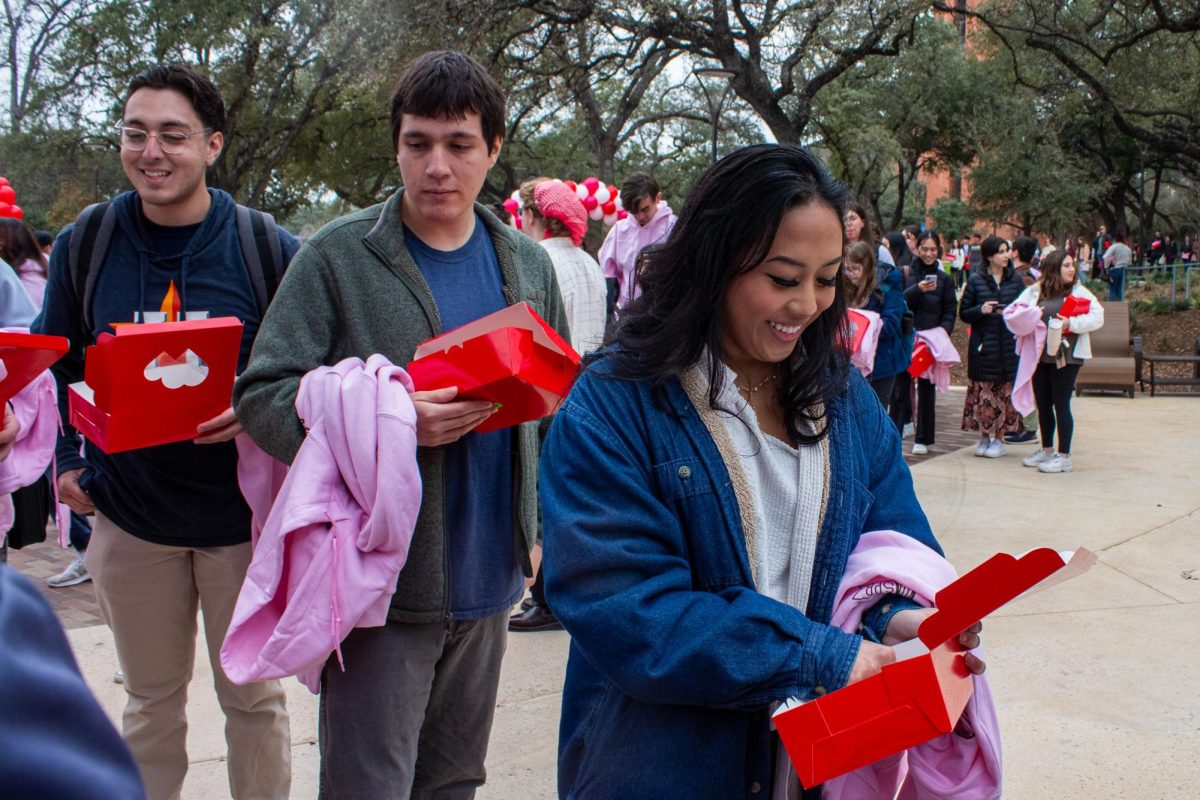Photo by Kate Nuelle
If Texas’s population is undercounted by even one percent in the upcoming census, the state could lose about $300 million of federal funding a year, according to Scott Brown, assistant director of experiential learning. Trinity is trying to help change that.
The TU 2020 Census and Voter Registration Task Force comprises of faculty, staff and students has worked to increase community engagement since it formed last fall. Brown co-chairs the task force with Jamie Thompson, director of Student Involvement.
According to Brown, the state of Texas is not contributing financial resources to the census campaign. Members of a higher education census task force in San Antonio reached out to Thompson to create the Trinity-specific task force to increase census engagement.
“The work is really happening on the ground level,” Brown said. “Therefore, our institutions of higher education in San Antonio have convened, and we essentially have all agreed that we will unveil efforts on our own campuses to ensure that students are aware of the census and that they get counted.”
Once formed, the task force realized it could combine that with voter engagement.
“We realized, well, this can be something even bigger, and it could be it could go beyond the census and really include the voter engagement component,” Brown said. “This task force, the local task force that we have on our campus is unique to us.”
For the spring, their focus will be on the census and ensuring Trinity community members know what they need to do to complete the census. According to Thompson, the process is simple for most Trinity students.
“Students who live on campus in Trinity facilities will be counted by Trinity,” Thompson said. “So part of our promotion and awareness will be about telling folks who live on campus that the university will submit based on data we already have about you, data that’s already on file. We’ll submit that information to the Census Bureau through a secure file transfer.”
The task force is trying to increase awareness for Trinity students who do not live on campus, as they have to submit their numbers to the Census Bureau themselves. This is the first year that the Census Bureau will offer three different ways to be counted: by mail, over the phone or online.
“We’ve got to then educate and create awareness for the students who live off-campus and in non-Trinity housing,” Thompson said. “And so for them, they’ll need to look for a piece of mail that will come to their residence, they’ll need to identify one person who’s going to complete the census form on behalf of all of the inhabitants living with them.”
Thompson said she thinks a lot of the confusion will stem from students thinking they’re not responsible for filling out the form, or rather, that students will think their parents are responsible.
“Tax status, dependents, things like that don’t impact the count that census count at all,” Thompson said. “This is about where you reside most of the time. Even if students here return home — and home isn’t San Antonio — if they return home for the entire spring break, for the entire summer break, the entire winter break, the majority of your time is still spent in San Antonio.”
Sophomore Noor Rahman thinks there will be confusion because no Trinity students have had to fill out a census form before.
“The census only happens once every 10 years, so no one here has probably done it before,” Rahman said. “So they don’t necessarily know how to do it or that they even have to.”
The task force is focusing on remedying this potential confusion by tabling, advertising, hosting a Super Nacho Hour — which happens to fall on Census Day — and increasing awareness in as many ways as they can.
“We’re just trying to emphasize the importance,” Rahman said. “For every person who doesn’t fill out the census, the state loses tens of thousands of dollars of funding per person, and these are the kinds of things that go into universities, like Trinity, for budgets for building new buildings or research or things like that. Trinity, even though we’re a private university, gets federal funding.”
Then, at the end of this semester and into the fall, the task force will begin to focus on voter engagement. Their first event is a voter registration deputization training next Thursday, Feb. 6, at 4:30 p.m.
“It could be their first time voting in an election. We know that, you know, that if voters vote in three consecutive elections, it will start to become a habit. And so then they’ll become lifelong voters. And so to be a part of an effort where we can begin to cultivate that civic identity which includes voting now to build these in a lifelong connections that think is exciting to me,” Brown said.













